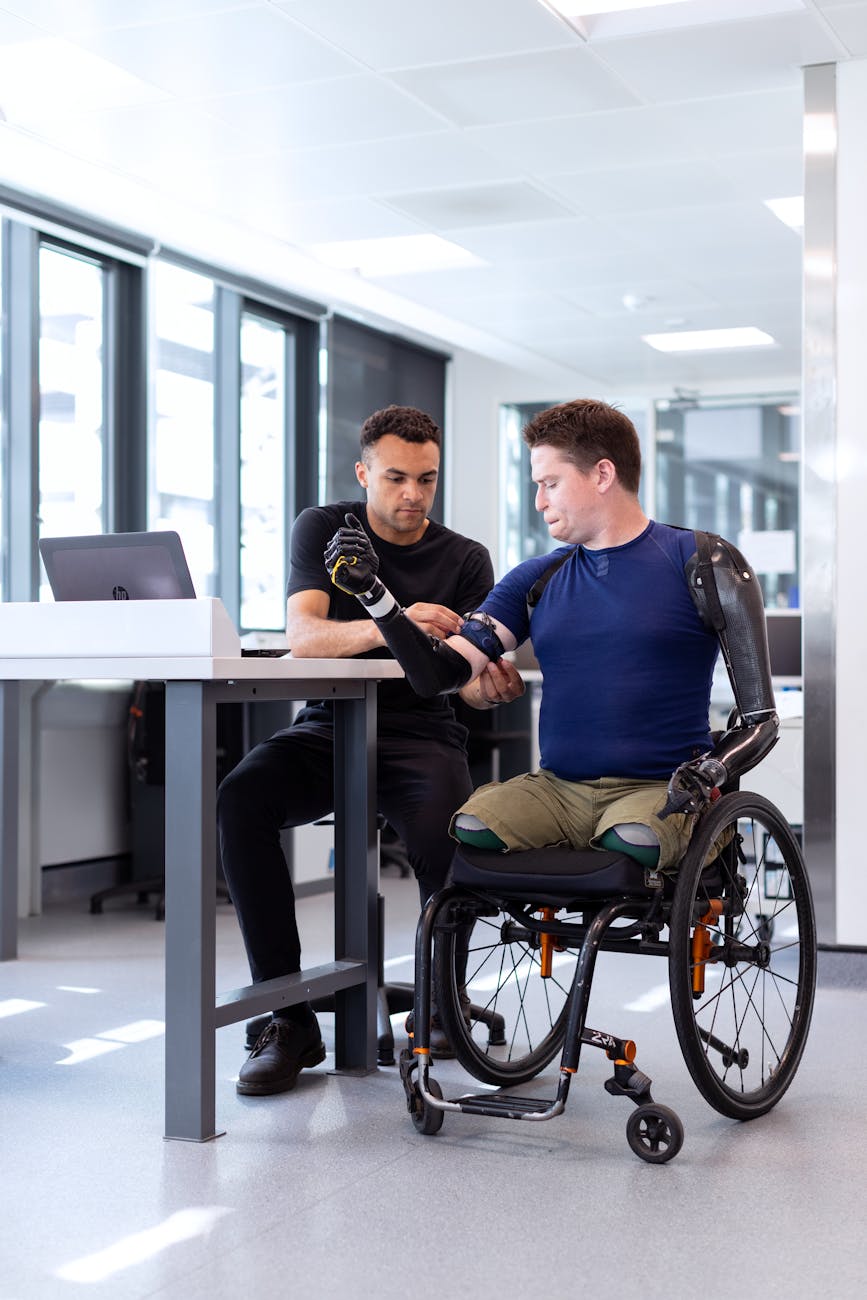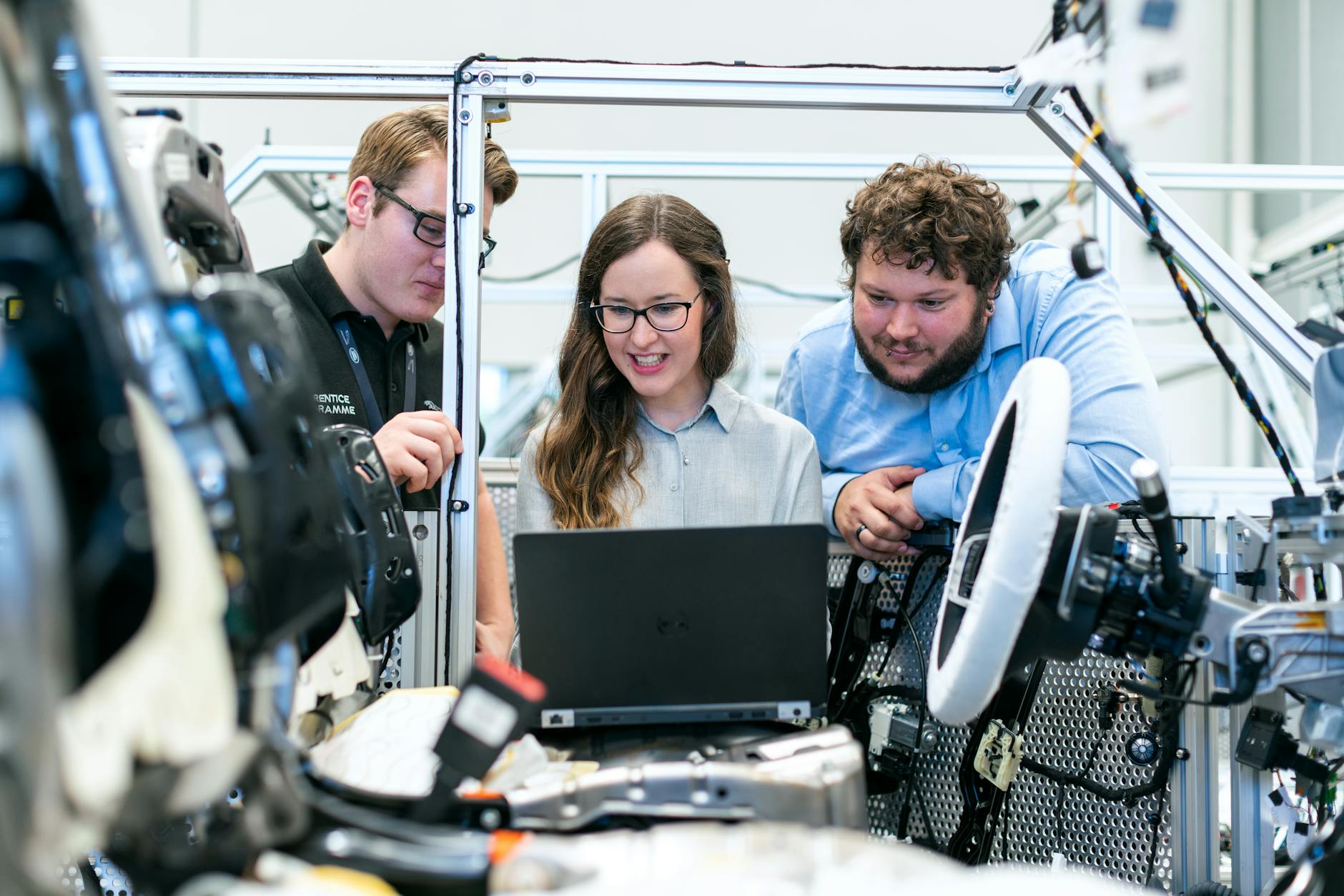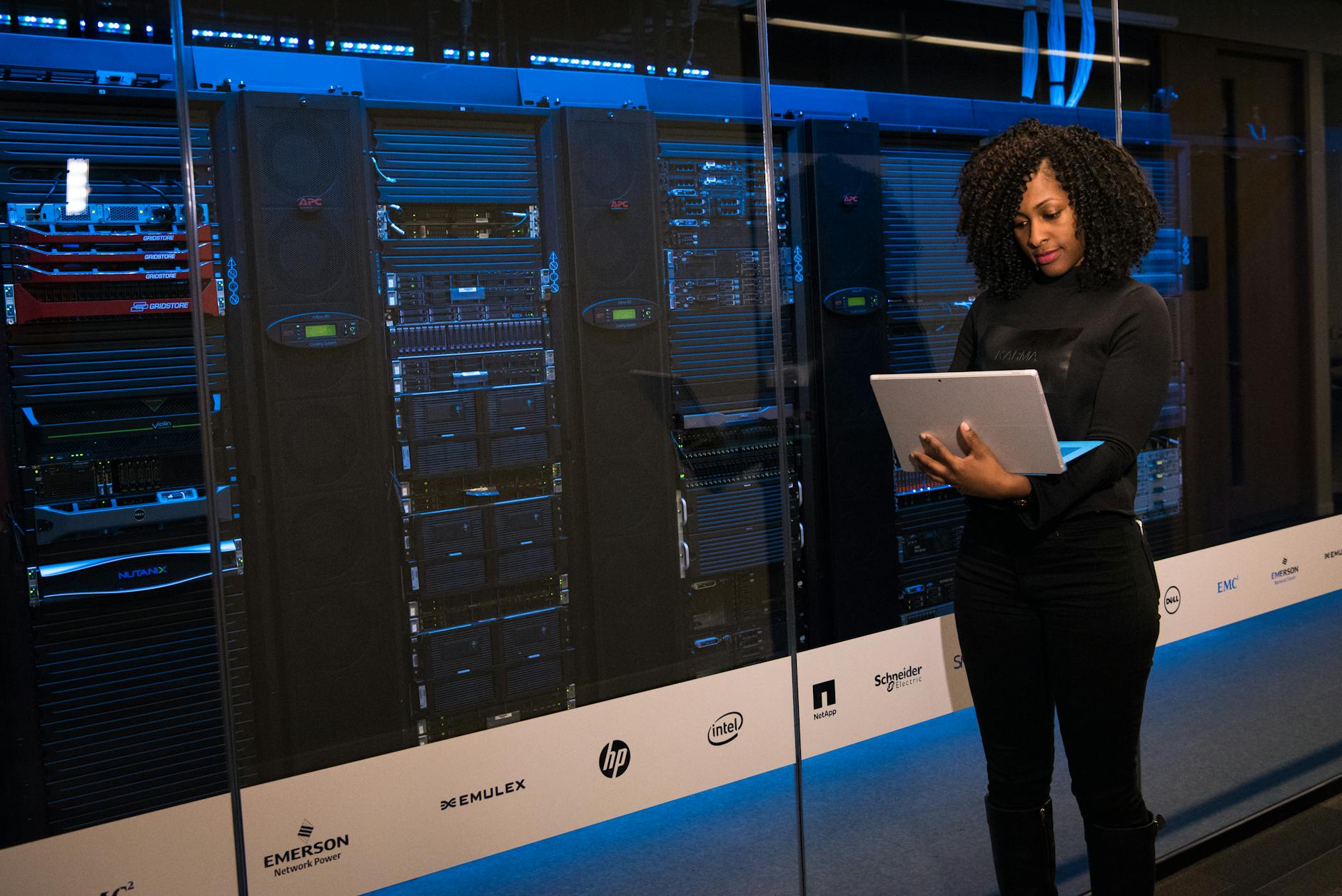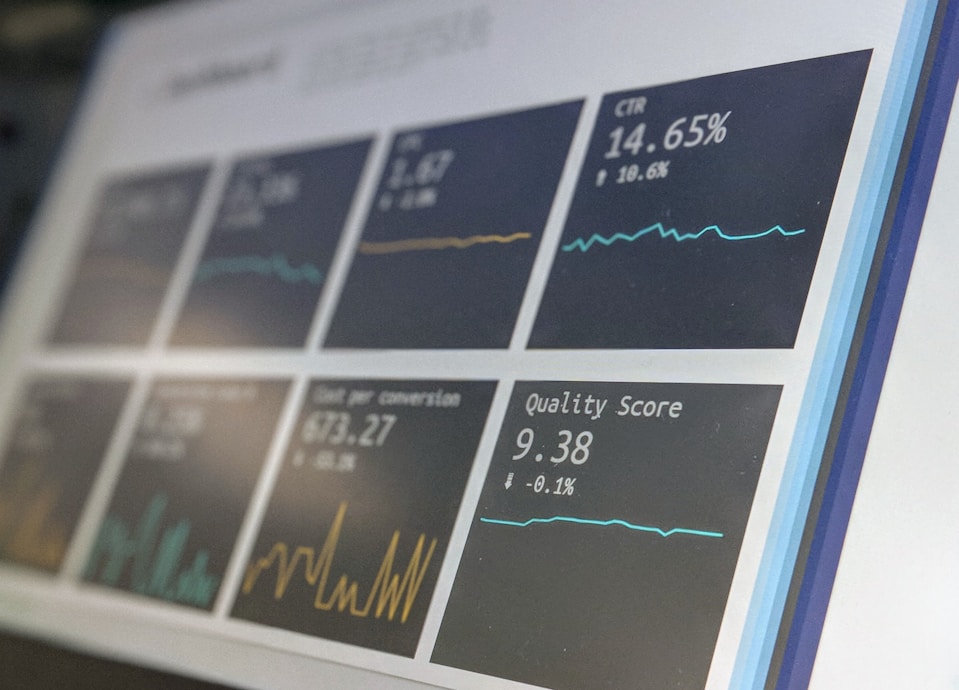Over the past decade, AI technologies have become an inextricable part of our business operations, regardless of size and industry. Consider this: The AI market worldwide was valued at $184 billion in 2024 and is going to reach $826 billion in 2030. This remarkable jump does the talking.
And truly, can you imagine automating repetitive tasks, streamlining workflows, and making data-driven decisions without AI technologies in place? Probably not. One of the most powerful innovations making such a paradigm shift in business operations is the AI copilot.
If you wonder how exactly an AI copilot can redefine the way your business works, let’s jump into 11 use cases to see.
Unlocking the Power of AI Copilot: Use Cases Across Industries
As a quick side note, AI copilots, exemplifying agentic AI, are virtual assistants with incredible potential to solve a variety of business challenges, whether it’s speeding up task execution or analyzing large datasets. In general, there are different copilots to consider depending on your specific business goals and needs.
One of the key players in AI copilot development is Microsoft. Currently, it offers a wide variety of copilots tailored for different purposes. Take GitHub Copilot, for instance. It’s a really tasty morsel for developers, thanks to its ability to simplify coding tasks. Dynamics 365 Copilot, on the other hand, streamlines marketing and customer support services.
But do you know what the cherry on the cake is? Microsoft’s Copilot Studio. It empowers businesses to effortlessly build their own custom copilot from scratch, regarding its intuitive low-code approach.
Many custom copilots rely on Python development services under the hood to implement AI models, connectors, and automation pipelines.
You may alternatively consider Amazon Web Services for developing your own AI copilot. Unlike MS Copilot Studio, it requires a bit more technical expertise but gives you more control and flexibility.
Overall, copilots offer plenty of benefits. The opportunity to seamlessly create a virtual assistant tailored to their unique needs makes this innovation even more appealing for entrepreneurs . With all these in mind, it should come as no surprise that many businesses today widely utilize copilots, but let’s focus on the most prominent use cases.
1. Healthcare

The healthcare industry we have today is entirely different from what it was decades ago. And all this is thanks to innovations. Utilizing AI copilot may streamline your health management system, therefore elevating not only staff’s efficiency but also patients’ satisfaction.
Let’s go over the key benefits you may reap by employing an AI copilot in your healthcare solution:
Virtual health assistant: Handle plenty of tasks, from accurately answering queries to analyzing health data and providing personalized treatment plans.
Preauthorization and documentation support: Promptly and accurately fill out insurance forms and preauthorization documents, leading to faster claim approvals.
Patient record summarization: Automatically transcribes doctor-patient conversations and generates a summary with all key medical details included, so that doctors have comprehensive patient records.
HIPAA-aware data access: Keep audit trails and limit access to patients’ medical records, ensuring they are aligned with HIPAA compliance requirements for data protection and privacy.
Discover more use cases of Artificial Intelligence in Healthcar
2. Finances

The financial industry is one where even a small mistake can cost a fortune and jeopardize the reputation of the business. That’s to say, accuracy in this sector is the key. Typically, to achieve this, financial institutions should excel in activities like data analytics, risk management, and planning.
Fortunately, AI copilots may assist you along the way. In particular, they can handle large volumes of datasets, leading to accurate predictions. But the benefits of this innovation for the financial industry don’t end there. Here’s what else to consider.
Document review automation: Identify missing compliance files to flag potential legal issues, analyze contacts, and loan applications to reduce review time.
Underwriting support: Assess risks based on individual input and historical data to streamline underwriting decisions and provide personalized recommendations.
Portfolio management: Highlight the best investment opportunities based on market trends, individual financial goals, and possible risk factors.
Audit logging & sensitivity labeling: Copilots are integrated with compliance tools for audit logging to ensure transparency and accountability for every AI interaction. Thus helping you meet regulatory and security requirements.
Learn more about how AI Redefines Finance and Banking
3. Retail and eCommerce

Personalized customer experiences, 24/7 support, and efficient order management and tracking are often taken for granted. And really, we’re so used to them that it feels like they’ve always been there. However, without modern technologies like natural language processing, GenAI, machine learning, and IoT, we couldn’t enjoy this flexibility.
All of these innovations, undoubtedly, play a big role in retail, but today, as our focus is on AI copilot, let’s see what it brings to the table.
Product recommendation: Provide relevant offerings for the target audience based on their sales habits, spending, and similar factors.
Customer service assistants: Generate fast and comprehensive answers to clients’ inquiries.
Sentiment analysis: Collect and analyze customer reviews or comments to get a big picture of customer satisfaction.
Store ops automation: Monitor stock levels in real-time, ensuring your store won’t run out of in-demand products.
Want to craft a smart eCommerce solution?
4. Logistics and Supply Chain

What comes to mind first when thinking about robust logistics software? Most likely, you picture an app with capabilities like real-time route planning and tracking, smart fleet and delivery management, and parcel auditing.
You are to the point. The logistics industry is continuously evolving, seeking to speed up business processes and make them more secure. And AI technologies play a huge part in achieving these goals.
Here are just a few prominent opportunities AI copilots open up for logistics and supply chain:
Route optimization: Analyze real-time traffic, weather, road conditions, and delivery history to offer the fastest and most fuel-efficient routes.
Incident reporting: Empower warehouse staff and drivers to generate incident reports, whether by voice or text, and instantly log them into your system.
Workforce scheduling assistants: Smoothly adjust schedules for fleet and warehouse staff to ensure productive and continuous operations.
Predictive maintenance: Track vehicle performance like tire health, fuel consumption, and engine temperature to catch problems early and prevent breakdowns.
Discover how we helped our client come up with the Next-Generation Smart Tires
5. Manufacturing

The global smart manufacturing market is expected to reach $998.99 billion by 2032. Just for comparison, in 2024, it was valued at $349.48 billion. One of the key reasons behind this rapid growth is the rise of smart technologies, with industrial automation at the forefront.
AI technologies aren’t sitting on the sidelines either. Specifically, AI copilots bring intelligence to the core of manufacturing. From this perspective, the role of Microsoft Copilot in this sector is quite big.
In particular, the best use cases for Microsoft Copilot in manufacturing lie in its ability to perform factory maintenance, improve product development, automate invoice processing and error checking, and much more.
Probably, you are not questioning the importance of copilot in manufacturing, but let’s skim through the core opportunities it brings to this niche:
Quality control assistants: Promptly identify any product defects based on sensors’ data or images.
Maintenance & repair: Ensure you have a comprehensive guide of equipment’s repair walkthroughs, as well as a checklist and historical fault context to help you prevent breakdowns.
Compliance checklists: Create compliance documentation and real-time audit checklists to ensure your products and goods meet high-quality and safety standards.
Energy efficiency: Assist in optimizing energy consumption, thus both cutting costs and elevating sustainability.
Find out more about our manufacturing software development services
6. Insurance

Another prominent use case of AI copilot you may see is in the insurance business. Whether it’s automating workflows, elevating personalized offerings, or setting competitive pricing, there are many advantages an AI copilot can bring to your InsurTech solution. In particular, you may benefit from:
Claim automation: Speed up claim processing, thus reducing errors and time required for the claim approval.
Risk assessment and intelligent underwriting: Quickly assess potential risks associated with insuring a person or asset while also streamlining and simplifying the overall process.
Personalized policy recommendations: Analyze customer data to offer insurance packages aligned with individual needs.
Customer support: Promptly assist clients in filling out insurance forms and applications and answer all the inquiries around the clock.
7. Telecommunication

Long wait time for support, low service quality, and unreliable network coverage are among the top concerns people used to have about telecommunications. And here again, advanced technologies kicked in to change the way people experience telecom services. Let’s have a look at the role of AI copilot in these improvements:
Predictive maintenance: Assist in identifying potential equipment failure early on based on historical data and asset monitoring.
Network management: Continuously analyze network traffic to identify anomalies and maintain a stable connection.
Network security: Provide real-time network monitoring to identify malicious activities promptly and keep the network secure.
Resources optimization: Allocate resources (e.g., network bandwidth, customer service agents) effectively based on demand.
8. Education

AI in education is not a new thing. Today, there are countless educational apps designed to make the learning process both engaging and effective for students. There are several AI copilots to utilize in this regard, and MS Copilot is among the leading ones.
One of the best use cases for Microsoft Copilot in this sector is providing students with insightful answers to their inquiries based on GPT-4 and DALL-E 3 technologies.
Let’s zoom in on the core advantages AI copilots can bring to your educational endeavor:
Personalized learning plan: Provide the best study plan for each student based on their learning style and preferences, thus assisting in realizing individual academic goals.
Enrollment assistance: Accurately answer students’ queries and provide comprehensive information to simplify application processes.
Classroom management: Takes the burden of class scheduling, attendance tracking, and student progress monitoring off educators’ shoulders, significantly improving classroom management.
Automated grading: Check student assignments and provide feedback based on their work. This makes the assessment process not only more transparent but also frees up educators’ time.
9. Government and Public Sector

Let’s admit that this sector is among the ones whose services used to be stressful for people. That’s probably because dealing with public institutions involves too much paperwork, long queues, and tough procedures that frustrate individuals.
However, AI copilots have stepped in to notably reduce bureaucratic delays. Below are the top opportunities copilots offer to the government and public sector:
Citizen assistance: Simplify the process of filling out forms, booking appointments, tracking application status, accessing public records, etc.
Regulatory compliance and policy analysis: Review large volumes of documents to highlight potential compliance risks and ensure alignment with current laws and regulations.
Grant and proposal evaluation: Accelerate the grant review process, ensure application accuracy, and highlight potential risks, thus assisting in selecting the most relevant option.
Case management and document review: Organize case files based on specific requirements (e.g., type, urgency, eligibility), therefore significantly reducing document review time and enhancing overall process accuracy.
10. Architecture and Design

Moving forward on our list of AI copilot use cases, let’s talk about architecture and design. Today, AI copilot is actively employed for many different purposes in this field — from planning structures to visualizing interior spaces and refining design workflows. But let’s skim through the top tasks this innovation can streamline:
Concept development: Provide a solid design concept based on inputs like project requirements, environmental conditions, and budget.
Space planning: Suggest the best way to use your physical space wisely and align it with your design goals.
3D modeling automation: Create realistic illustrations from early sketches to provide instant previews of the project.
Sustainable recommendations: Make eco-friendly materials suggestions based on environmental data analysis to increase sustainability and reduce carbon footprints.
11. Travel and Hospitality

And the last industry on our list is travel and hospitality. From simplifying client experiences to streamlining business operations, AI copilot is making a significant impact in this niche. Specifically, this innovation can:
Trip planning: Assist tourists in planning their routes accurately, create a shortlist of sights to visit, suggest available hotels, and more, thus establishing a well-organized roadmap.
Dynamic pricing: Analyzes competitor pricing and demand, helping businesses determine the best prices for their services.
Workforce optimization: Automates plenty of tasks, from booking to reminders and scheduling, saving staff valuable time.
Overcoming language barriers: Accurately and promptly translate any kind of text, whether it’s website content to simplify the booking process or customer reviews to help businesses improve services. Therefore, becoming an incredibly useful tool for both consumers and businesses.
Discover how AI Copilot innovations are shaping Travel and Hospitality Software Solutions
Considering an AI Copilot for Your Business? Let’s Talk
We’ve covered a lot of ground regarding AI copilot use cases across industries. Sure thing, this list continues to grow as this innovation is actively integrated by businesses of all sizes and sectors.
Given the wide range of possibilities an AI copilot brings, from improving operational efficiency to boosting customer retention, it’s no surprise that interest in it continues to rise. However, to unlock its full potential, be ready to tap into the strategic AI copilot development process.
Need assistance? Let Velvetech step in and bring its expertise to your project. Contact us for a consultation.






























